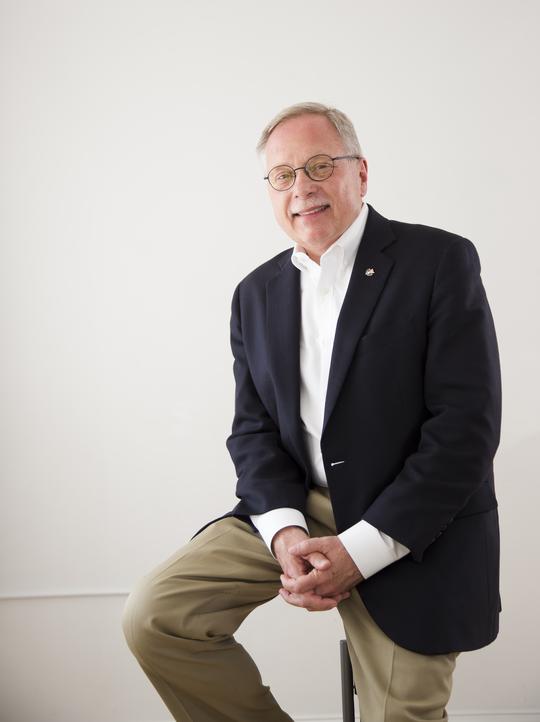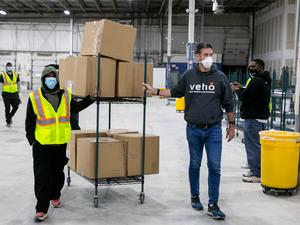
In recent weeks, several portfolio companies of the St. Louis Arch Angels, an angel investment group that backs early stage startups, have encountered a similar trend. Their access to venture capital has narrowed.
“I can tell you for a fact there is a venture capital slowdown going on,” said Brian Kinman, chairman of the Arch Angels. “We have seen it with several of our portfolio companies, where they had fundraising that they were going through and the fundraising at the last second was withdrawn, even after they had ‘commitments.’”
Venture capital pumped into startups in recent months has tightened after years of record fundraising totals for U.S. firms. Venture investment into U.S. startups dipped to $70.7 billion in the first quarter, compared with $95.4 billion the prior quarter. Locally, startups and venture capitalists say investment dollars continue to be available for companies, but the metrics required to snag them are becoming stricter.
“The metrics are certainly changing for companies seeking funding, at any stage,” said Brian Hopcraft, general partner at Clayton-based Lewis & Clark Ventures. “Entrepreneurs need to think about a lower burn rate, slower growth than they would've had otherwise, along with lower round sizes and lower valuations.”
Metrics matter
As St. Louis software startup Total Orbit currently seeks funding to expand, CEO Michael Margaf says it seems investors are pouring money into “fewer and fewer ideas on a napkin.” They want to see tangible financial metrics, Margraf said.
"From what I’m seeing a lot of the investors are really, really holding you to have a certain amount of monthly recurring revenue,” he said.
Total Orbit, which has developed a patient information and education platform used by hospitals, is seeking between $500,000 and $1 million from investors, Margraf said. It will mark the first outside capital for the 5-year-old firm, which has been bootstrapped by its founders. It is targeting the capital to be used to conduct pilots of its platform. Those pilots, if successful, will generate recurring revenue for Total Orbit, its CEO said. In the current funding landscape, where investors are becoming stricter around revenue targets, Margraf believes the firm’s focus on using its capital to generate revenue will give it an edge in discussions with investors.
“I’m not just proving it and it goes away. I’m proving it and it turns into monthly revenue,” he said.
‘A good thing overall’
The reduction in venture funding isn’t for a lack of capital available. Venture capitalists raised a record $128.3 billion for 730 investment funds in 2021, the first time venture firms secured more than $100 billion in a year. However, Kinman said investors’ concerns about a broader economic downturn have led some to place more focus on protecting their current investments than seeking new ones. He said that’s what Arch Angels portfolio companies have heard from investors in deals that have fallen apart.
“The explanation is, 'We still like your company. We think you have a great opportunity, but we’re very concerned about the market and we need to pool our cash to make sure that we have enough for our existing portfolio companies, as opposed to investing in new,'” Kinman said.
At Arch Angels, Kinman said the investment group is looking harder at startup valuations as it mulls fundraising deals. It's also ensuring startups' growth plans take into account the slowing market when it comes to plotting out when they will seek their next round of venture capital, given the tighter funding landscape.
Lewis & Clark Ventures is among the venture firms nationwide with dry powder, reporting in 2021 it raised $50.5 million for a new investment fund. Hopcraft said the firm is aided by being in the early stages of that fund in that it “can afford to be very patient as the market settles.”
While for startups, the risk of raising less capital at a lower valuation may cause growing pains in the near term, Hopcraft said he believes a tighter investment market will yield stronger companies over time.
“Ultimately times like these produce more capital efficient companies, which is a good thing overall,” Hopcraft said.











